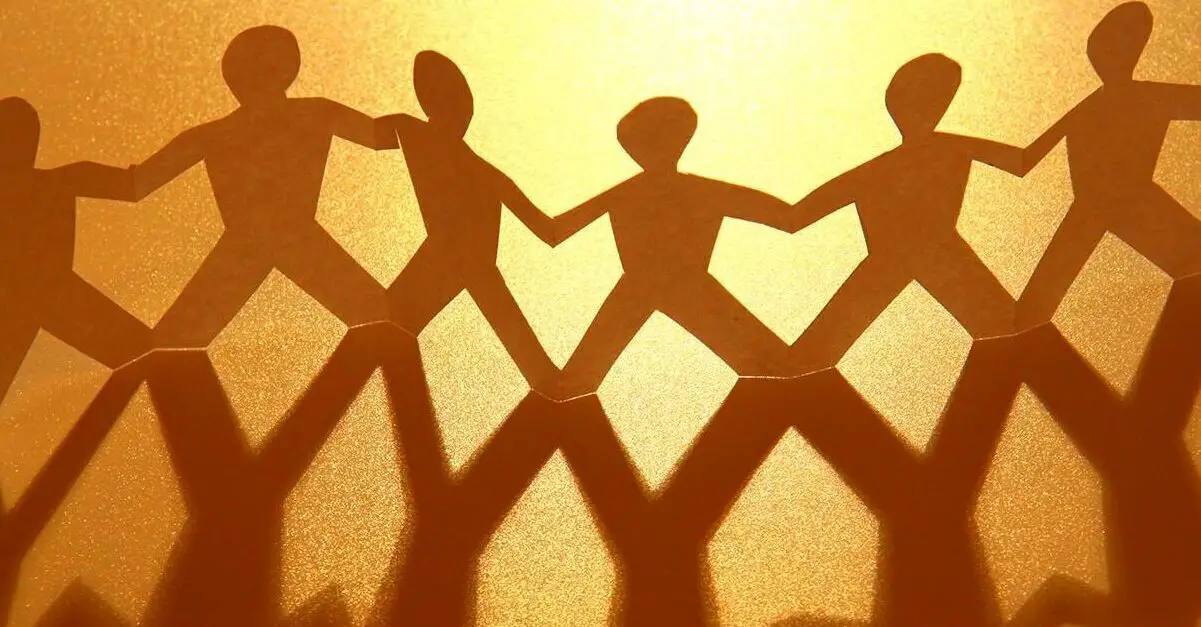8 Popular Ways To Manage and Master Autistic Social Awkwardness
One of the things that makes having autism difficult for many of us is socializing and relating to other people. Research and articles about autism and Asperger’s syndrome, which is the diagnosis I received, say that autistic social awkwardness is a key indicator of being on the spectrum.

Being socially awkward because we don’t know what to say or how to act is something that nobody would ever want to have happen.
One of my issues is that I don’t always pick up on nuances of people’s conversations. I take what they say literally vs. sarcasm at times. Also, I am not the best conversationalist around.
In other words, yep, I’m awkward. While I want to have a meaningful conversation and have friends and a relationship like anyone else, it can just become strained, which can make me seem even more strange.
A particular problem with autistic social awkwardness is that it can create a challenge with making and keeping friends. In addition, it can also lead to individuals with social awkwardness being ostracized.
And those feelings of being left out can lead to autism social anxiety, which is essentially people being so worried about saying and doing the wrong thing that it becomes a self-fulfilling prophecy of almost guaranteeing that they do. One of those challenges with autism individuals, is that they try to over-compensate by being overly social and too friendly, which becomes off-putting as well.
Learn more about how to break down barriers that challenge autism and friendships.
Autism is a complex neurological disorder that typically affects social interactions as well as overall communications. Being diagnosed with autism spectrum disorder (ASD) often means a lifetime of social, communication, and behavioral challenges. Social awkwardness is a classic behavior associated with the condition. Awareness and understanding is key.
Overcoming Social Awkwardness If You Have Autism
If you have autism and are dealing with not-so-successful attempts at being social, here are some things I recommend. As I write this I apply it to myself as well.
I suggest pushing yourself outside of your comfort zone, and make yourself try new experiences. By that, I mean you can:
- Go to new places where you have the opportunity to be around people of your own age group. It could be a place with live music, where young adults hang out like at a coffee shop or a bar (if you are old enough), or a mall or gym.
- You could also sign up to play video games either online or in person. People have interest in playing old games of their childhoods together, still enjoy 2-person challenges like races, or like playing multi-player in strategy games.
The virtual reality games are also pretty cool. Video gaming fun can enhance social skills for autistics because it requires interaction when playing multi-player.

If you try hard and work on your social skills it really can assist you in your efforts to help with your autistic social awkwardness, and hopefully avoid autism social anxiety.
I tell myself and others that you just need to get out there and try new experiences. That’s how you learn as well.
If You Are A Parent/Friend of Someone With Autism
The funny thing about autism is that everyone is different, and not everyone wants to socialize. However, it is my experience that most of us do, but in ways that don’t overstimulate us or stress us out.
It can be uncomfortable if we are included in something outside of our standard routine, but don’t always think that we don’t like the activity.
Asking us to go and participate in something new or different can sometimes make us nervous and accelerate our feelings of autistic social awkwardness. But please still ask us, because these experiences can also help us grow.
Learn more about comfort zones and what I wish people knew about autism adult symptoms.
8 Best Ways To Include A Person With Autistic Social Awkwardness:
- Consider the person’s triggers before planning an outing. If someone has an averse reaction to eating at restaurants then that might be a bad idea to consider. But maybe packing a lunch and taking it to a local park on a nice day could work.
- Ask the person if they want to go, and don’t assume they will. We like to be asked, not forced, although we can sometimes be resistant.
- Simple activities can also be the most satisfying. Hanging out at the lake or going to a dog park can be fun. Don’t make it a major production.
- Keep the time short. If it is an activity that everyone enjoys then expand the time next time. But traveling somewhere for hours and then being in big crowds may not be a great time … for anyone.
- Ask the person what activities they might find enjoyable. We may be quiet or shy, or may not express opinions outwardly, but that doesn’t mean we aren’t thinking of something we would like to do.
- Typically, but not always, avoid surprises. Again, everyone is different. But I like to think about the upcoming activity and plan out what I will need or want ahead of time.
- Don’t assume we aren’t having a great time just because we are quiet or aren’t overly excited. I am a deep thinker and I enjoy doing things. But I am not as outwardly emotional or talkative as much as my peers. But I am smiling on the inside.
- Finally, if the person with autism is doing something that is not typical and bothersome, find a way to discreetly let them know. We often really don’t realize it. And if it is something small and doesn’t affect the outing, decide whether it’s important enough to mention. Otherwise, let it go. You can always bring it up at a later time. Let us have some fun!
3 Strategies for Acknowledging the Challenge of Social Awkwardness
Acknowledging the challenge of autistic social awkwardness is often the first step toward overcoming it. It’s essential to recognize that feeling uncomfortable in social situations is a common experience for many people, and it doesn’t mean something is wrong with you.

Additionally, acknowledging the challenge of social awkwardness allows us to approach it with empathy and understanding. By recognizing our own struggles as autistics, we become more attuned to the experiences of others who may also feel socially uneasy.
This awareness can lead to greater compassion in social interactions and pave the way for forming genuine connections based on mutual understanding rather than judgment.
Ultimately, acknowledging the social challenge enables us to reframe our perception of social awkwardness from a hindrance to an opportunity for connection and personal development.
Here are 3 key strategies to consider when working on overcoming autistic social awkwardness and autism social anxiety.
- A key strategy for building confidence in social situations is to practice self-compassion. Often, we are our harshest critics, and learning to be kinder to ourselves can significantly boost our confidence.
By acknowledging and accepting our flaws and mistakes with compassion, we can break free from the cycle of self-doubt and develop a more positive self-image.
As part of that approach, try and step out of your comfort zones regularly. This might involve trying new activities, speaking up in social settings, or taking on challenges at work.
Each time we push ourselves beyond what feels safe or familiar, we demonstrate resilience and capability to ourselves, which in turn bolsters our confidence levels.
- Practice, practice, and practice. One of the most effective ways to overcome social awkwardness is by practicing social skills in a safe and supportive environment.
This can be achieved through joining clubs, attending workshops, or engaging in group activities where you can interact with others in a low-pressure setting. By doing so, you can build confidence and improve your communication skills without the fear of judgment or rejection.
Furthermore, seeking out volunteering opportunities can provide a safe space to practice social interactions while making a positive impact on others. Volunteering allows you to engage with different individuals from diverse backgrounds and develop empathy and understanding, which are essential components of strong social skills.
Embracing these opportunities not only helps in overcoming social awkwardness and autism social anxiety but also fosters personal growth and enriches your overall life experience.
- Seeking professional help for social awkwardness can be a daunting but ultimately empowering decision. Working with a trained therapist or counselor can provide valuable insights and strategies to overcome the challenges of social interaction.
A professional can offer personalized guidance, support, and tools to help navigate social situations with greater confidence and ease.
Therapy also provides a safe space to explore underlying issues that may contribute to feelings of social awkwardness, such as anxiety, low self-esteem, or past experiences. Through targeted interventions and techniques like cognitive-behavioral therapy (CBT) or exposure therapy, individuals can learn to manage their symptoms effectively and cultivate healthier patterns of thinking and behavior.
Seeking professional help is not a sign of weakness, but rather an act of courage in taking proactive steps towards personal growth and well-being.
Do you have other ideas on how to include a person with autistic social awkwardness, or just social awkwardness in general? Please share your advice so we can all learn!
Additional Challenges Individuals with Autism Face
Learn more about other issues that autistics face:
- New Research Reveals Autism Mental Health Linked to These Disorders
- Is Autism a Disability? Surprising Reasons for the Debate
- Autism and Holidays: Why Special Occasions Can Be Challenging
- 6 Fascinating Facts About Autism You Probably Didn’t Know
- Autism and Poor Hygiene: The Smelly Truth to Overcome
- Breaking Down Barriers that Challenge Autism and Friendships
- Anxiety and Autism: 5 Powerful Strategies to Conquer Emotions
- Growing Up Autistic: How I Overcame Challenges and Now Thrive
- 6 Ways to Tackle Autism Fireworks Anxiety and Sensory Overload
- Autism Family Support: 5 Ways to Achieve A Happy Household